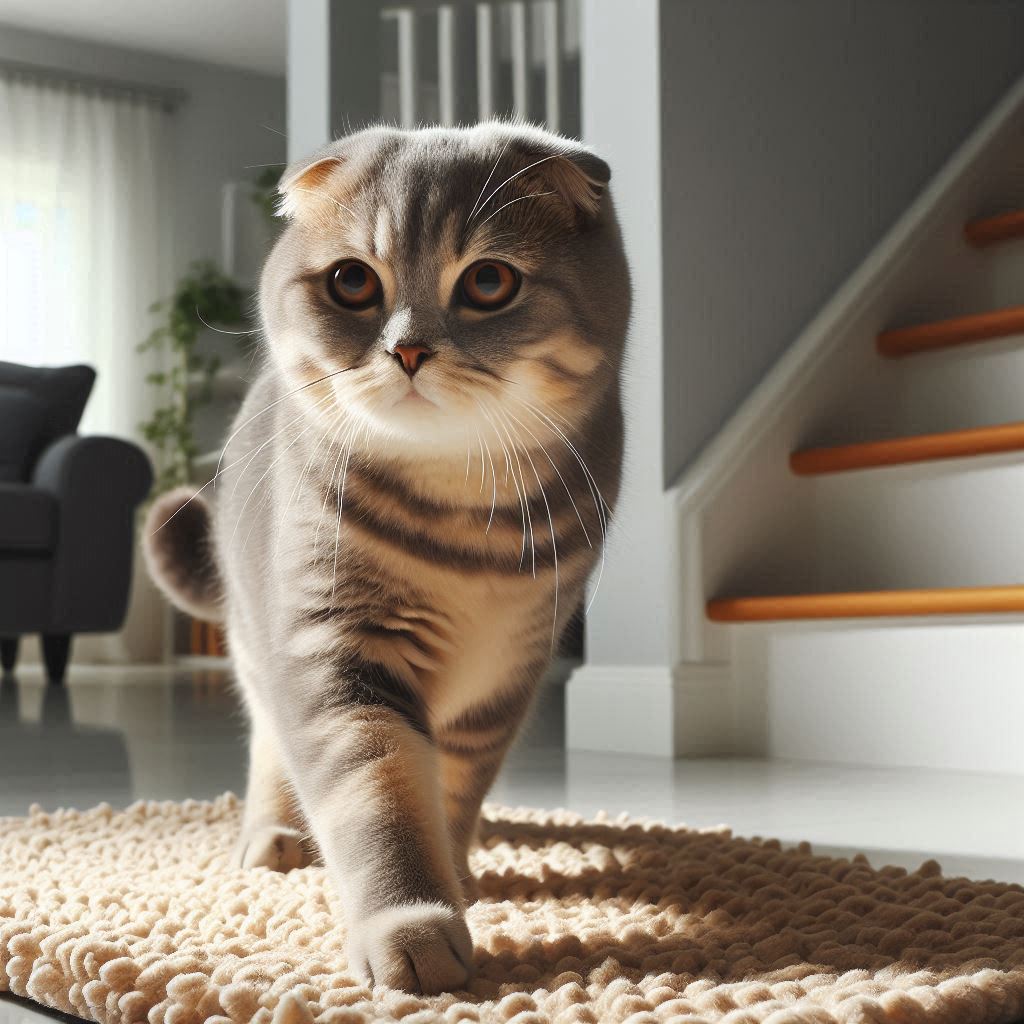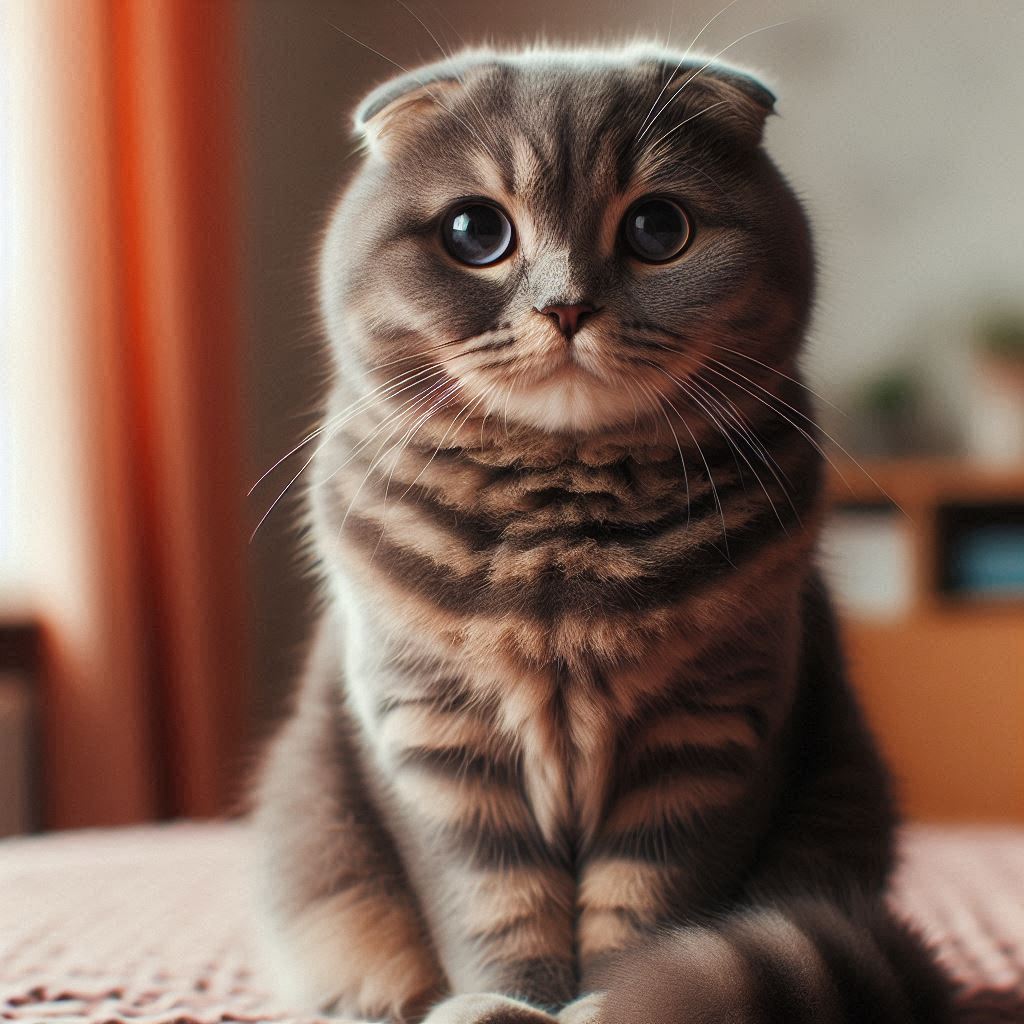The Scottish Fold Cat is a unique and charming cat breed known for its distinctive folded ears, round face, and large, expressive eyes. Their signature ear fold, which gives them a striking owl-like appearance, has made them one of the most recognizable and beloved cat breeds worldwide. Scottish Folds are gentle, affectionate, and adapt well to different living environments, making them a popular choice for cat lovers.
History and Origin
The Scottish Fold cat breed originated in Scotland in the 1960s when a shepherd named William Ross discovered a cat with an unusual ear fold on a farm. The cat, named Susie, had ears that folded forward and downward, creating a unique appearance. Susie was bred with local cats, and her distinctive trait was passed down to her offspring.
The breed quickly gained popularity due to its distinctive look, and breeders worked to establish a stable population by crossing them with British Shorthairs and American Shorthairs. However, the fold in their ears is caused by a genetic mutation that affects cartilage, so careful breeding practices are essential to avoid potential health problems.
Today, Scottish Folds are recognized by various cat associations and are adored for their sweet nature and one-of-a-kind appearance.
Physical Characteristics
- Ears: The most defining feature of the Scottish Fold is its folded ears. Not all Scottish Folds are born with folded ears; kittens are born with straight ears, and the fold typically appears within the first few weeks of life. The degree of the fold can vary from a single fold, where the ear tips bend forward, to a tighter triple fold that lies flat against the head.
- Face and Eyes: Scottish Folds have a round face with large, wide-set eyes that give them a sweet and curious expression. Their eyes come in various colors, depending on their coat color.
- Body: Scottish Folds are medium-sized cats with a sturdy, muscular build. They are not overly large, but they have a strong, well-rounded appearance. The breed comes in both shorthaired and longhaired varieties.
- Coat: The coat of a Scottish Fold can vary in texture. Shorthaired Scottish Folds have a dense, plush coat, while longhaired Folds have a soft, flowing coat. Both coat types come in a wide variety of colors and patterns, including solid, tabby, and bi-color.
Personality and Temperament
Scottish Fold cats are known for their easygoing, affectionate, and adaptable nature. They are gentle and enjoy being around people, making them great companions for families, singles, and seniors alike.
Affectionate:
Scottish Folds are known for being loving and loyal cats. They enjoy spending time with their human companions and are often found curling up next to their owners for a nap. While not overly demanding of attention, they appreciate affection and bonding with their families.
Calm and Quiet:
Scottish Folds are generally quiet cats and do not vocalize excessively. Their soft, gentle demeanor makes them ideal for quiet households or apartment living.
Social:
Scottish Folds are social and tend to get along well with children, other cats, and even dogs. They adapt well to new environments and are not typically shy or aloof.
Playful and Curious:
Though they are calm and laid-back, Scottish Folds also have a playful and curious side. They enjoy interactive play and exploring their environment. Puzzle toys and climbing structures are great for keeping them mentally and physically stimulated.

Caring for a Scottish Fold Cat
Grooming
For shorthaired Scottish Folds, grooming is relatively simple. Weekly brushing is usually enough to remove loose fur and keep their coat healthy. Longhaired varieties require more frequent brushing to prevent tangles and mats from forming.
Diet and Exercise
While Scottish Folds are not overly active, they still need regular exercise and play to stay healthy. Provide them with toys, scratching posts, and opportunities for climbing to keep them physically fit and mentally engaged.
Health and Lifespan
Scottish Folds are generally healthy cats, but their genetic mutation that causes the folded ears can sometimes lead to health issues, particularly related to cartilage development.
- Osteochondrodysplasia: This condition affects the development of cartilage and bone. In severe cases, it can cause joint problems, pain, and difficulty moving. Responsible breeders work to minimize the risk of this condition by carefully selecting breeding pairs.
- Arthritis: Due to their genetic predisposition, Scottish Folds may be more prone to arthritis, particularly in the legs, tail, and spine. Regular vet checkups and monitoring for signs of discomfort or stiffness are important.
- Lifespan: With proper care and regular veterinary attention, Scottish Folds can live long, healthy lives. Their average lifespan is 12 to 15 years, though many live longer with good care.
Why Choose a Scottish Fold Cat?
The Scottish Fold Cat’s unique appearance and loving nature make it a popular breed for cat lovers seeking a calm and affectionate companion. Their adaptability, gentle demeanor, and easygoing personality make them a good fit for a variety of households, including families with children or other pets. If you’re looking for a quiet, social, and friendly cat with a one-of-a-kind look, the Scottish Fold may be the perfect addition to your home.
Conclusion
The Scottish Fold cat is a breed like no other, with its distinctive folded ears, round face, and affectionate personality. They are known for their loyalty, calm nature, and adaptability, making them an excellent choice for anyone seeking a loving and social feline companion. Whether you’re drawn to their unique appearance or their sweet temperament, the Scottish Fold is a breed that will bring joy, warmth, and companionship to any home.



